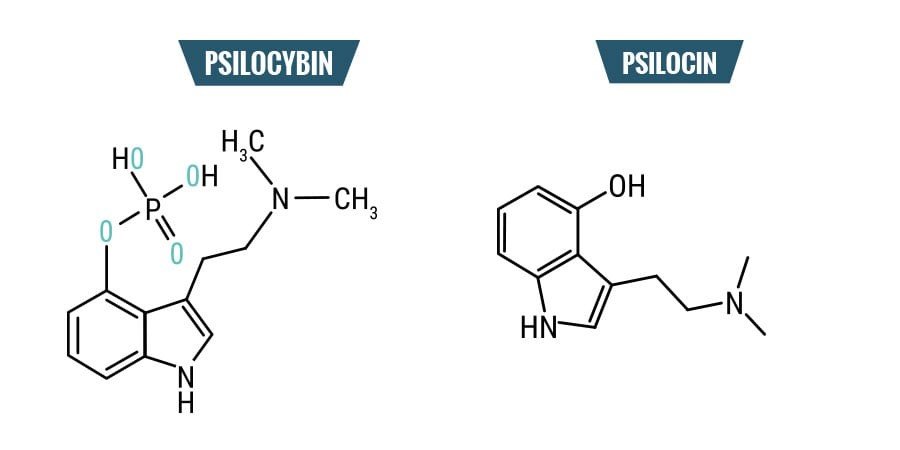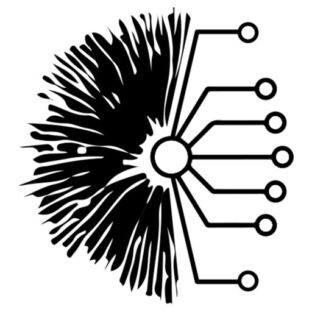Psilocybin and Psilocin
- Home
- Psilocybin and Psilocin

Lab
EquipmentsPsilocybin and Psilocin
Psilocybin and psilocin both play a role in your psychedelic journey, but what is the difference between them?
Psilocybin and psilocin are psychoactive compounds found in certain species of mushrooms, commonly known as “magic mushrooms” or “shrooms.” These compounds are responsible for the hallucinogenic effects associated with consuming these mushrooms. Psilocybin and psilocin are classified as hallucinogens and are considered controlled substances in many parts of the world.
Here’s a brief overview of these compounds:
Psilocybin: Psilocybin is a naturally occurring psychedelic compound that belongs to the tryptamine class of chemicals. It is a prodrug, which means that when ingested, it is metabolized by the body into psilocin, the active form responsible for the hallucinogenic effects. Psilocybin is found in various species of mushrooms, particularly those belonging to the Psilocybe genus. It is not psychoactive in its natural state but becomes so after being metabolized by the body.
Psilocin: Psilocin is the active metabolite of psilocybin. It has a similar chemical structure to serotonin, a neurotransmitter that plays a role in regulating mood, emotions, and other physiological functions. Psilocin interacts with serotonin receptors in the brain, particularly the 5-HT2A receptor, leading to altered perceptions, sensory experiences, and changes in thought processes.
When consumed, mushrooms containing psilocybin and psilocin can induce a range of effects, including altered perception of reality, visual hallucinations, changes in mood, enhanced creativity, and introspective experiences. The intensity and nature of these effects can vary widely depending on factors such as the dosage, the individual’s psychological state, the setting, and the specific species of mushroom consumed.
It’s important to note that the use of psilocybin-containing mushrooms is associated with potential risks and considerations:
Legal Status: Psilocybin and psilocin are classified as Schedule I controlled substances in many countries, meaning they are considered illegal to possess, produce, or distribute.
Safety: While many users report positive experiences, there is also the potential for adverse reactions, including anxiety, panic attacks, and “bad trips.” These experiences can be influenced by factors such as the user’s mental state, the environment, and the dosage.
Therapeutic Potential: Research into the therapeutic potential of psilocybin is ongoing, with studies exploring its potential benefits for conditions like depression, anxiety, and post-traumatic stress disorder (PTSD). Some clinical trials have shown promising results, but further research is needed.
Responsible Use: If psilocybin-containing mushrooms are decriminalized or legalized in certain regions, responsible use and harm reduction practices are essential. This includes understanding dosage, having a safe and comfortable environment, and being aware of potential interactions with other substances or medications.
So, what is the distinction? It all boils down to how the body responds with these chemicals. Both psilocybin ((O-phosphoryl-4-hydroxy-N) and psilocin (4-hydroxy-N,N-dimethyl-tryptamine) are hallucinogenic, although psilocin is primarily responsible for the mushroom high. This is because the most common way to consume mushrooms is through oral consumption, and any psilocybin consumed is broken down to psilocin in the digestive tract by the enzyme alkaline phosphate. We know that psilocybin is equally as psychedelic because scientific research frequently employs dosage methods that skip the digestive tract, preserving the structure of psilocybin within the body but yet producing the same effect.
It’s important to approach the topic of psilocybin and psilocin with respect for the legal, health, and ethical considerations involved. If you’re interested in learning more, we recommend staying informed through reputable sources and considering the legal and health implications in your jurisdiction.
Some more information can be found here: https://sporesclub.com

